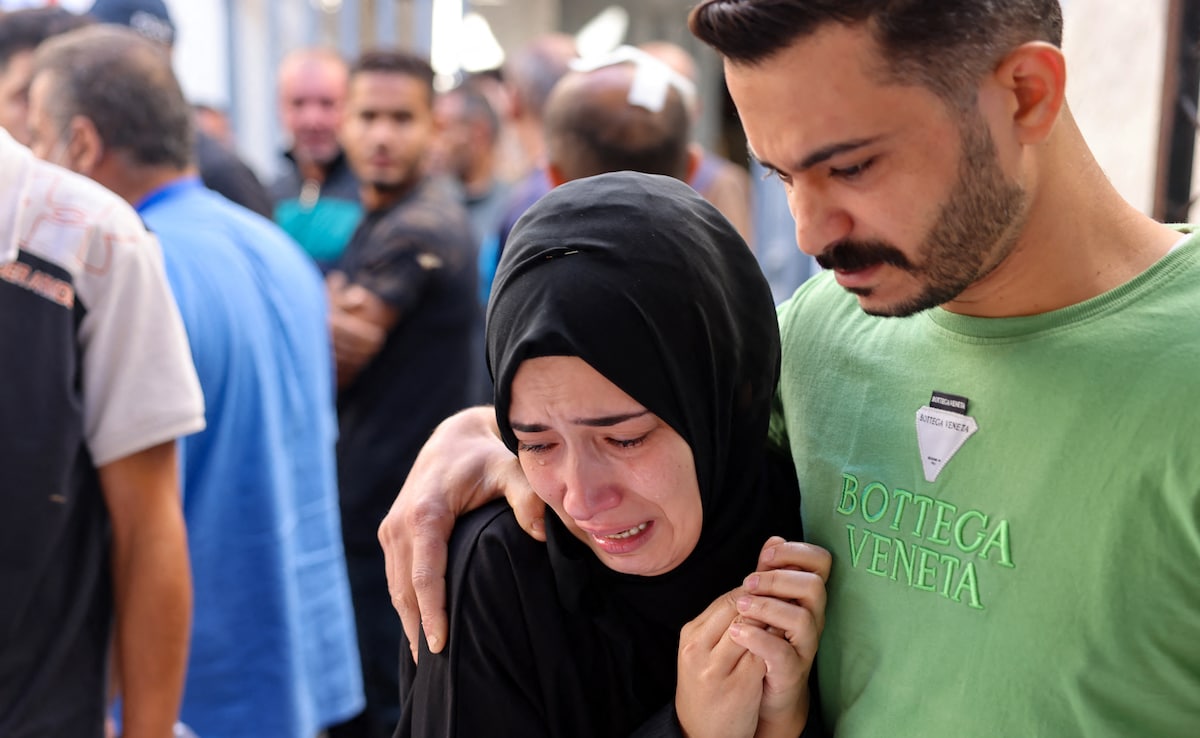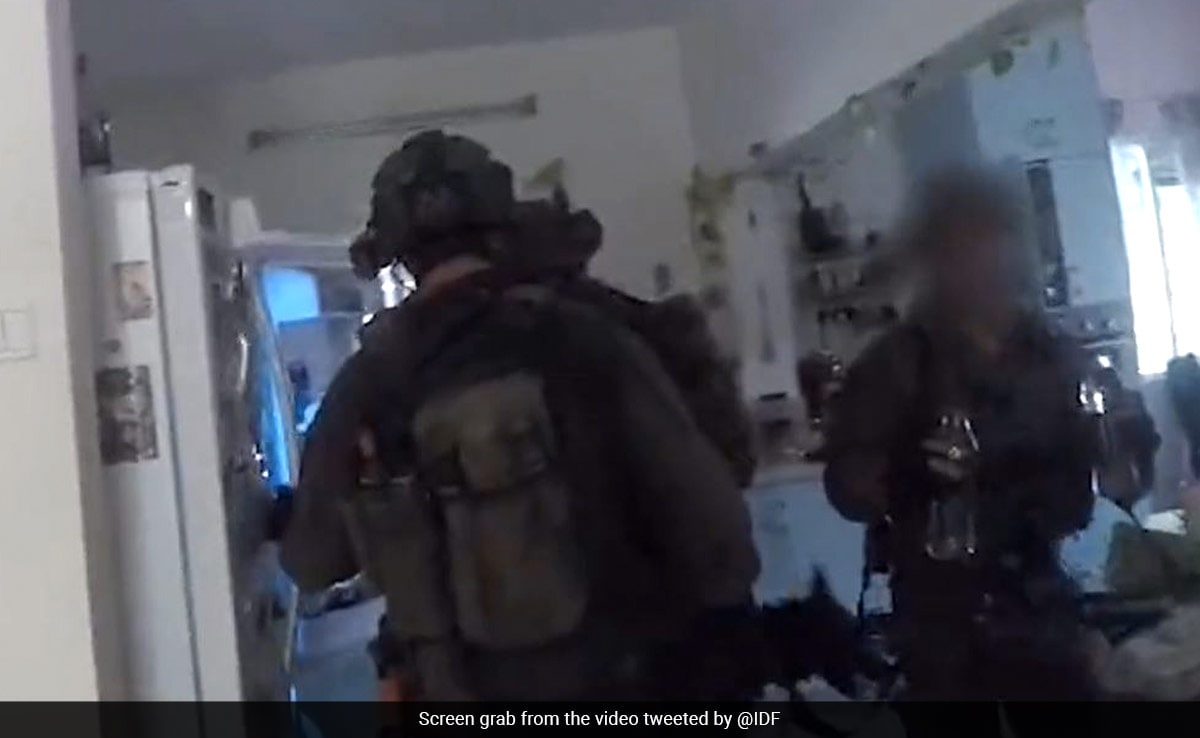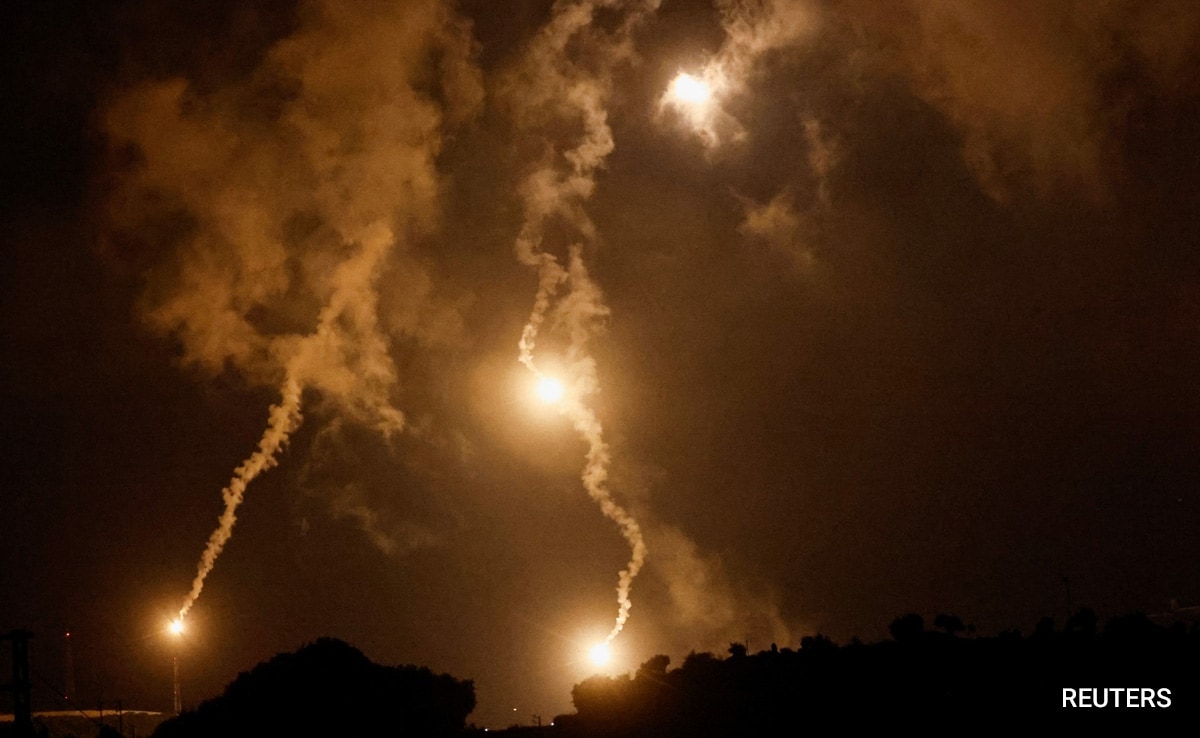Gaza’s population of 2.4 million is largely made up of descendants of those refugees
Gaza:
Omar Ashur became a refugee during the “Nakba” or “catastrophe” experienced by Palestinians following Israel’s creation 75 years ago and now fears the ongoing bombardment of Gaza will again force him into exile.
A retired general from the Palestinian Authority security forces, 83-year-old Ashur lives in Al-Zahra in central Gaza where Israeli missiles flattened an area of more than 20 buildings late on Thursday.
Residents had been warned to flee before the strikes, but many of them raced into the street with no idea of where to go.
When they returned in the early hours of Friday morning, they found a scene of devastation, with several blocks of buildings reduced to smoking ruins and rubble, an AFP journalist said.
The area lies about 10 kilometres (six miles) south of Gaza City where Israeli warplanes have focused their fierce bombardments since Hamas attacked Israel on October 7, beginning an attack that has killed at least 1,400 people, mostly civilians, Israeli officials say.
Although Israel urged Palestinians living in northern Gaza to head south ahead of an expected ground operation, Ashur decided to stay.
Beyond the ongoing bombardment, he also worries about the future, fearing the war will push Gaza’s residents — two-thirds of whom are refugees — to flee again.
‘Destruction with a clear aim’
“What’s happening is dangerous,” Ashur told AFP.
“I fear that the ongoing destruction has a clear aim, so people don’t have a place to live which will spark a new Nakba,” he said, referring to the 760,000 Palestinians who fled or were expelled from their homes during the 1948 war that accompanied Israel’s creation.
Gaza’s population of 2.4 million is largely made up of descendants of those refugees.
Ashur was just eight when he and his family fled in 1948 from Majdal — what is today the Israeli town of Ashkelon — to Gaza.
And for him, the ongoing war brings back painful memories.
“What’s happening today is much worse. At the time, Israel would shoot to kill and force people to flee but the current situation is more horrific,” he said.
The October 7 attack was the most deadly attack on Israeli soil since the state was founded, with most of the victims shot, mutilated or burnt to death on the first day, according to Israeli officials.
Since then, more than 4,300 Palestinians, mainly civilians, have been killed in relentless Israeli bombardments, according to Gaza’s health ministry.
‘A hellish night’
At least a million Gazans have been displaced by the ongoing bombing campaign, the UN says, with Israel also cutting off supplies of water, electricity, fuel and food to the impoverished enclave.
Gazing at the destruction in Al-Zahra is Rami Abu Wazna, his haggard face struggling to take it in. At least 24 buildings were razed, an AFP journalist said.
“Even in my worst nightmares, I never thought this could be possible,” he whispers.
Thousands of residents who had fled the neighbourhood spent the night trying to find shelter from dozens of Israeli strikes.
“Why bomb us, we’re civilians! Where will we go? Everything is gone,” Abu Wazna said.
“We heard our grandparents speak of the Nakba and today we’re the ones living it,” he continued. “But we won’t leave our land.”
Among the ruins, Umm Ahmad and her two sons are trying to salvage a few of their belongings.
“We’ve had a hellish night. The sky was red, everything was destroyed,” she says, her robes covered in dust.
“We didn’t take anything with us. I’m trying to find clothes for the children so they don’t get cold,” she says.
“They want to make us homeless.”
(Except for the headline, this story has not been edited by NDTV staff and is published from a syndicated feed.)
Waiting for response to load…











